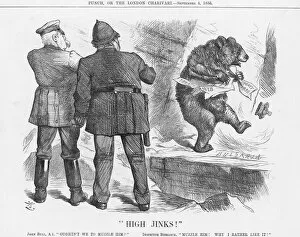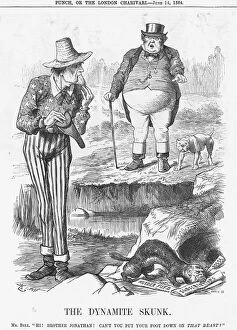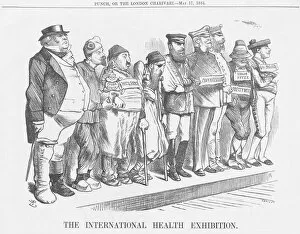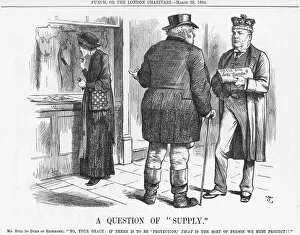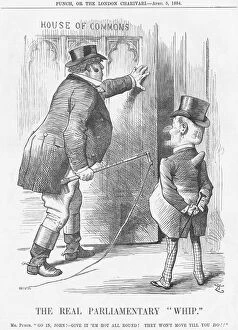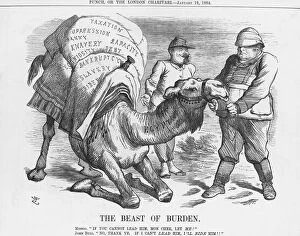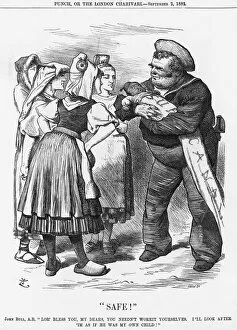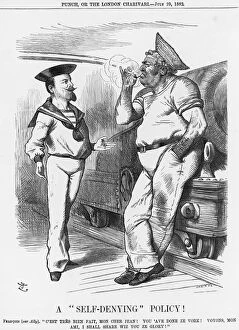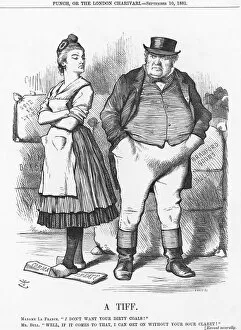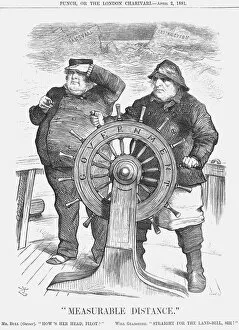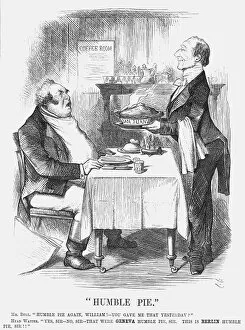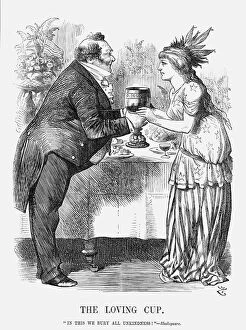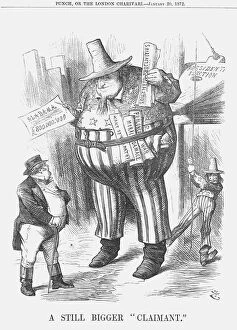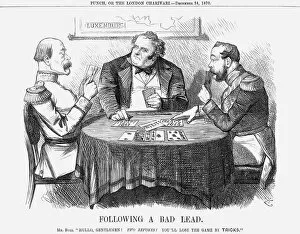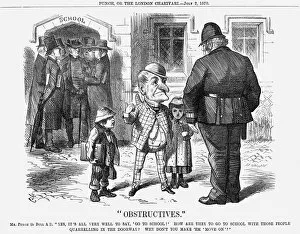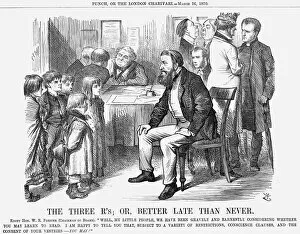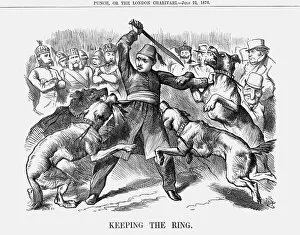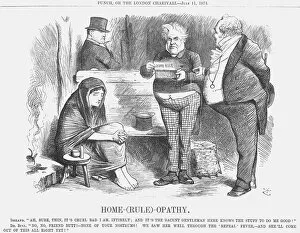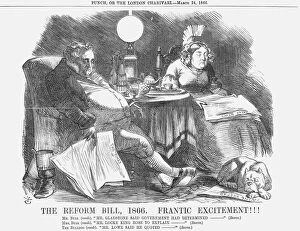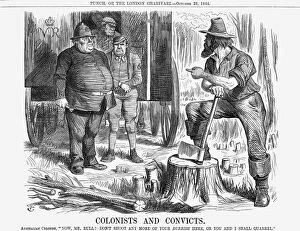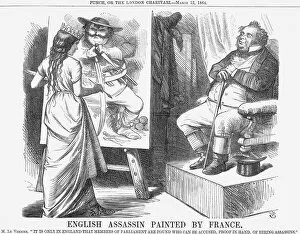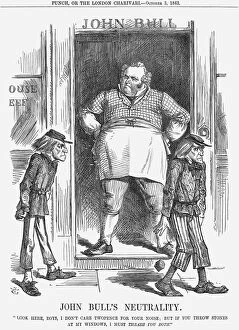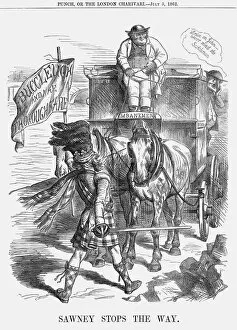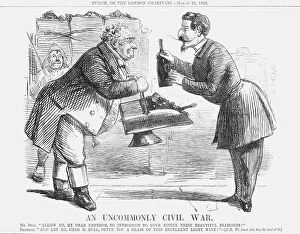John Bull Collection (#6)
"John Bull: The Octopus of Imperialism and British Identity" This captivating caption delves into the multifaceted persona of John Bull
For sale as Licensed Images
Choose your image, Select your licence and Download the media
"John Bull: The Octopus of Imperialism and British Identity" This captivating caption delves into the multifaceted persona of John Bull, symbolizing England's influence across continents. In an American cartoon from 1882 titled "The Devilfish in Egyptian Waters, " John Bull is depicted as an octopus, representing imperialism's relentless grasp on land worldwide. Another intriguing portrayal comes in the form of "John Bull taking Luncheon or British Cooks cramming Old Grumble Gizzard with Bonne Chere. " This image showcases British cooks filling John Bull's stomach with delectable delicacies, reflecting the nation's indulgence and comfort during that era. Moving back to history, we encounter a thought-provoking piece called "The Modern Job. Or John Bull and his Comforts. " dating back to 1816. This artwork sheds light on Britain's resilience amidst challenges faced during those times. Fast forward to May 1926 when Britain experienced a general strike; this event finds its place in our collection. A powerful depiction captures the essence of this significant moment for workers' rights within the country. Naval rivalry between Britain is humorously portrayed in a Punch cartoon titled "Poker and Tongs. " Through clever imagery, it highlights the competitive nature surrounding naval dominance at that time. "The Partition of China at the time of Boxer Rebellion" takes us to 1900 when global powers divided Chinese territories. This visual representation emphasizes how John Bull played a role alongside other nations in shaping world affairs during this tumultuous period. Shifting gears slightly, we explore another influential doctrine through a Monroe Doctrine Cartoon. It illustrates America asserting its authority over Latin America while showcasing how Britain observed these developments closely. Delving deeper into history reveals an early instance of income tax implementation through an artwork from 1798 aptly named "Income Tax. " Here we witness one facet contributing to John Bull's financial stability throughout centuries past.

